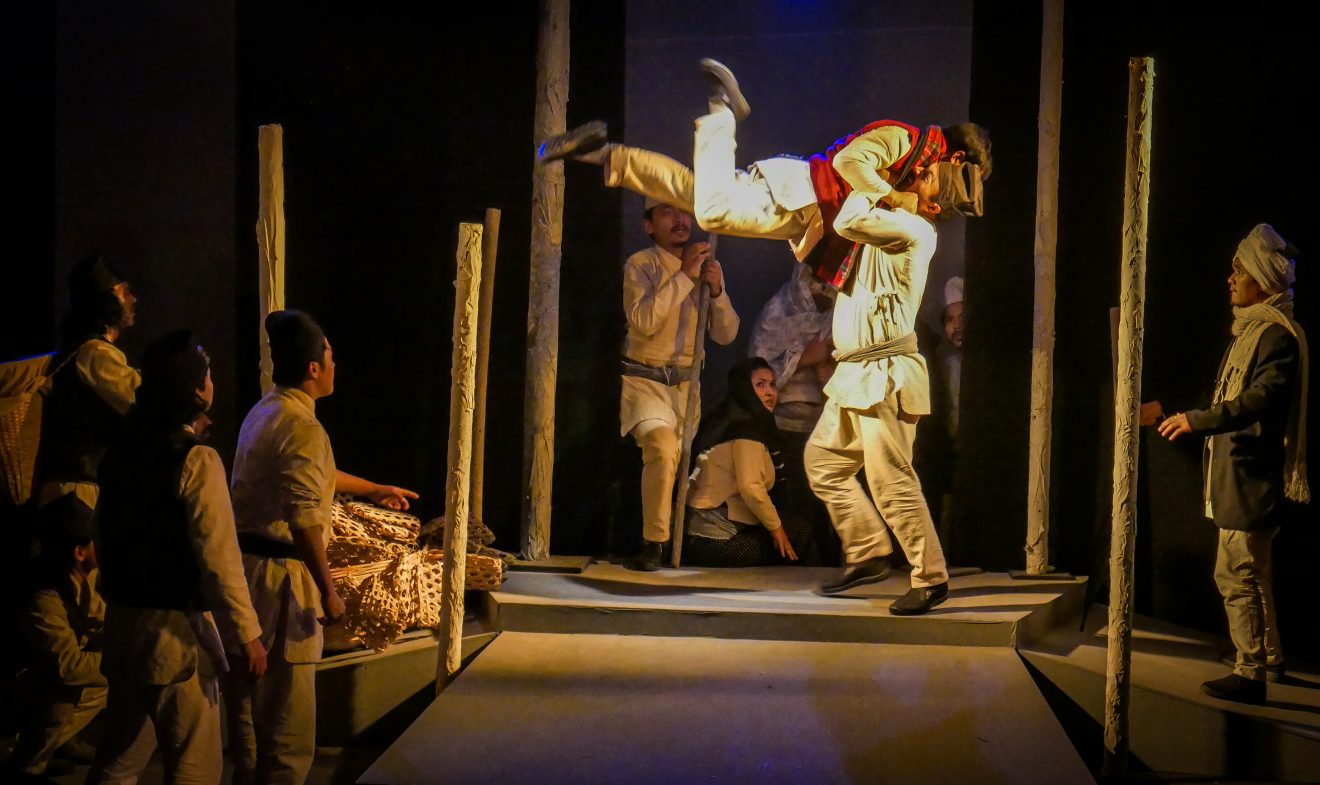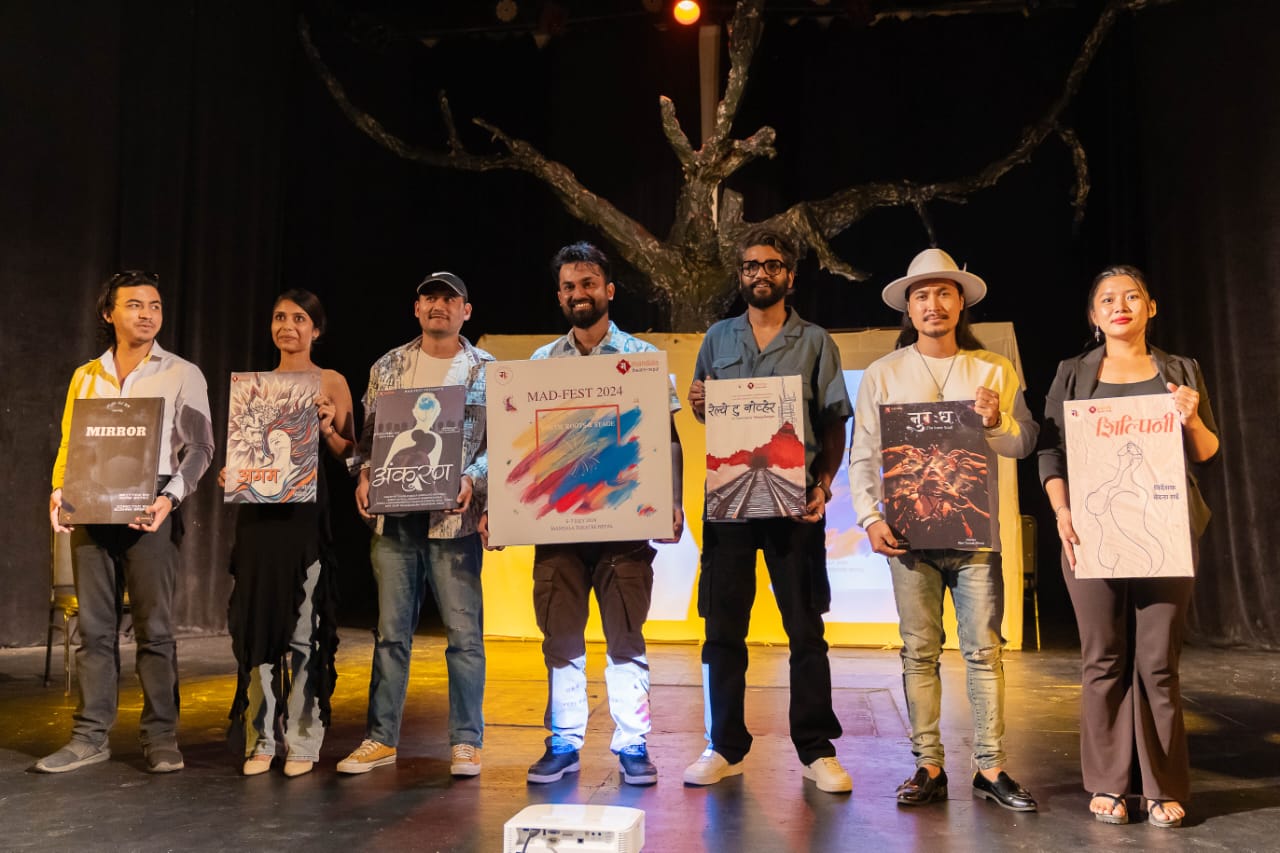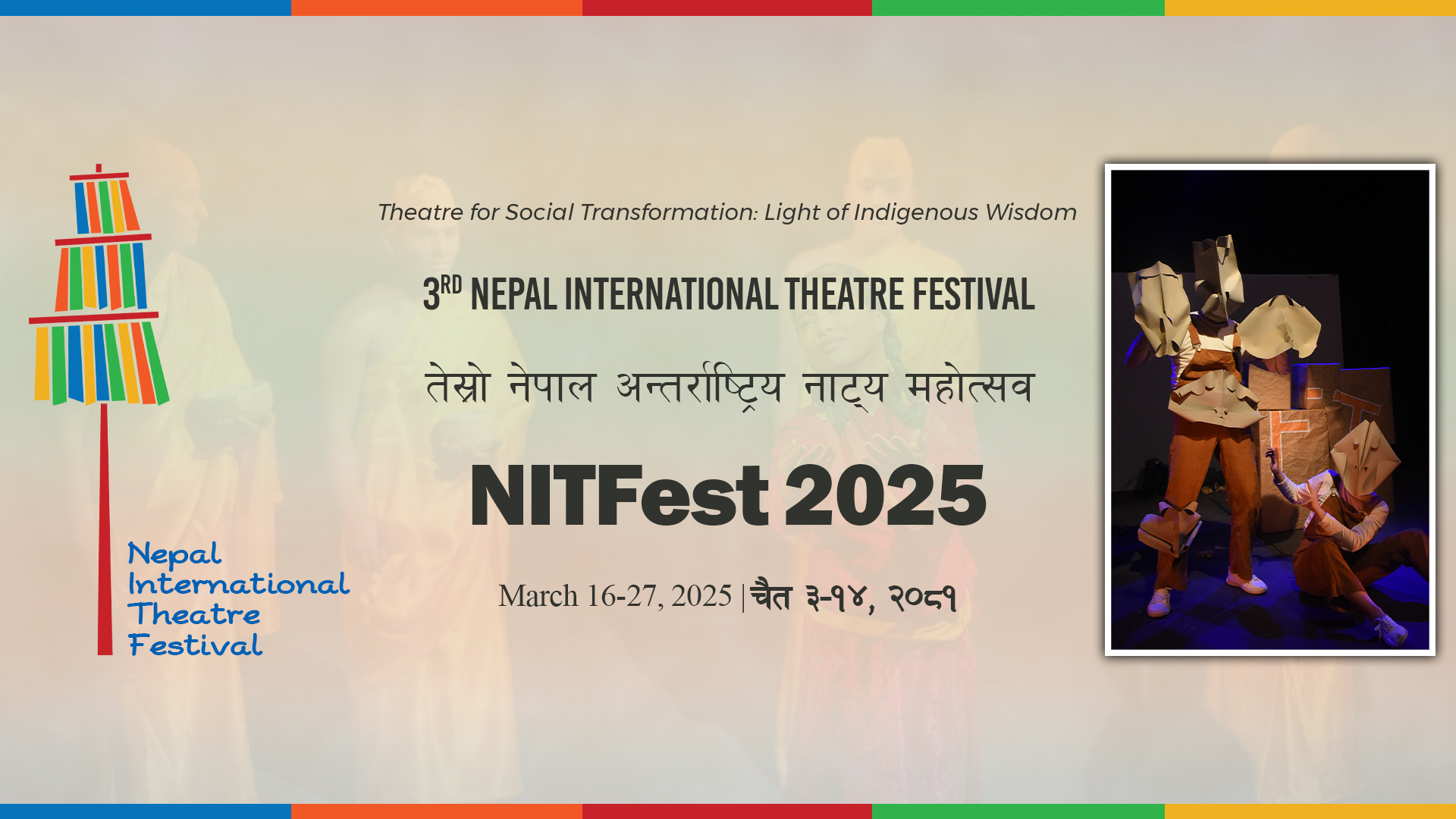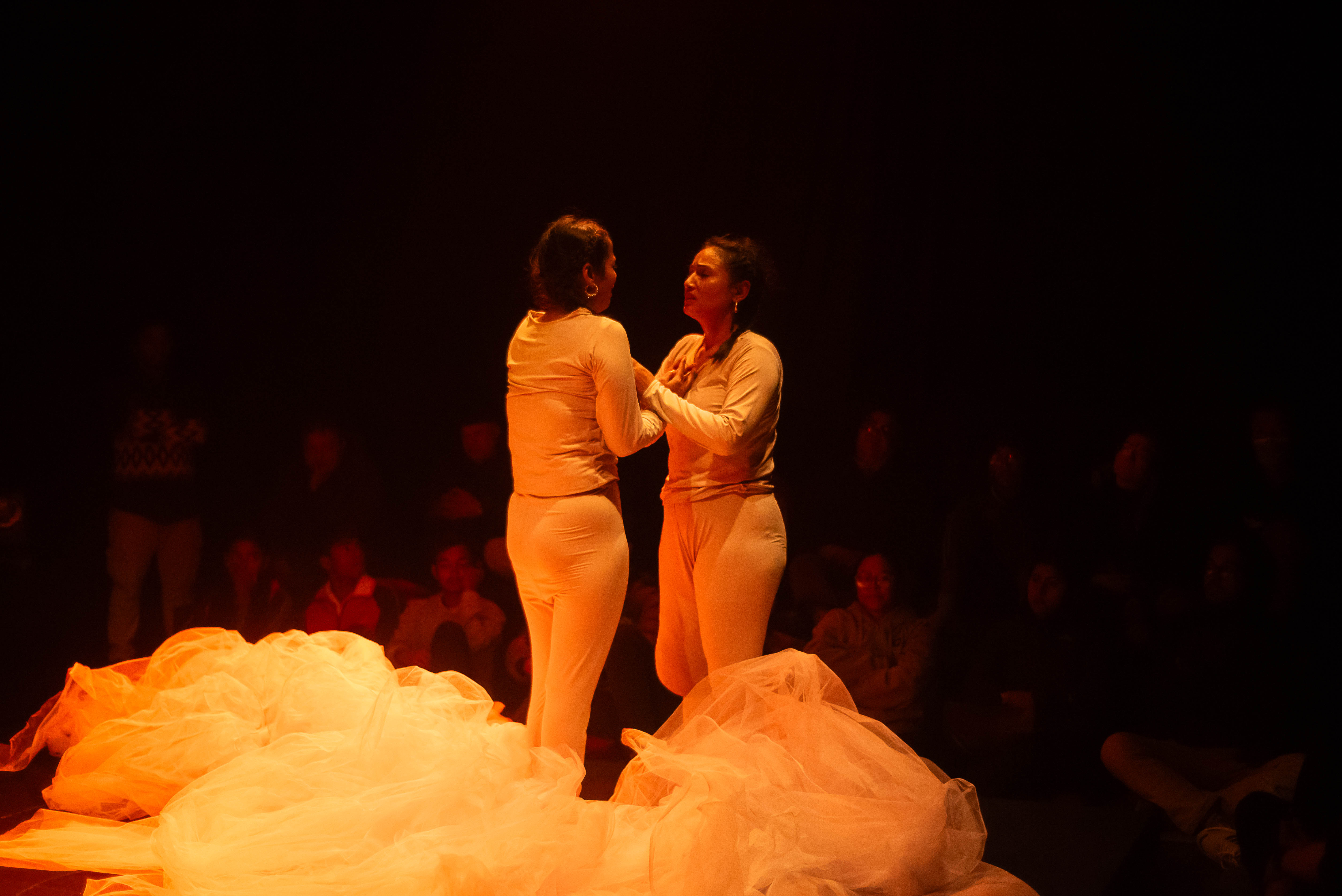Not every good relationship begins with a good term. So is the story of Harka Bahadur (Buddhi Tamang) and Birkha Bahadur Majhi (Bijay Baral), the protagonists in Mitjyu, a drama that is being staged at the Mandala Theatre in Kathmandu until this weekend.
Today, the two elderly people who are mits to each other, the most intimate bond of friendship that is possible in their culture, although they were were once each other’s foes.
Becoming mits (mit laune) is a ritual that has been going on for centuries in Nepal, in which two people of the same gender and age enter into a special form of friendship (miteri) that also connects two families. As shown in the play, Mitjyu, written by Som Nath Khanal and directed by famed Dayahang Rai, the two mits–Harka Bahadur and Birkha Bahadur–reenact the tradition that, besides being a fun watch, tells the meaning of true friends.
Friendship as faithful as it can be

Set somewhere in eastern Nepal, the mits in Mitjyu, in retrospection, recall their friendship to exemplify the idea of friendship inherent in the Nepali culture.
The play in fact revolves around two different settings: the past and the present. The flashback shows their youthfulness and love stories whereas, at present, they are aged and recall the memories for almost entire days.
One important figure both of them remember is Man Maya (acted by Srijana Subba). She was a lover of Harka Bahadur (Tamang). With the help of Birkha Bahadur (Baral), they were about to elope, but at the last moment, Man Maya dropped the plan. Since then, Harka Bahadur does not have anyone in his life except his mit Birkha Bahadur.
Their relationship shows the power of friendship and explains why it is important to have good friends in life. Despite a lot of ups and downs, the two friends never get separated. The play somehow also shows the quality that a good friend should have.
Although the play initially shows Man Maya leaving her lover all of a sudden, one ultimate message Mitjyu intends to give is true love never dies. Even after years of separation, hence, Harka Bahadur still has a place for Man Maya in his heart. His eyes and expression on the stage tell everything.
Realistic presentation

Whereas Harka Bahadur as a character definitely deserves appreciation for reinforcing the idea of true love, Buddhi Tamang also needs to be respected for his realistic expressions and actions.
Mitjyu, as a play, overall, does not have much weakness. Despite the two different time frames, the plots are well managed with adequate and efficient transitions so that the audience is not left confused. The scenes flow smoothly.
Like Tamang, other actors must be appreciated for their works. They have justified their role whether they were featured as a young or an elderly person. Their expressions, dialogue delivery, and actions were natural and realistic in both characters.
In some scenes of the play, you also hear the sounds of cultural instruments. They have made the play more vibrant. It makes you feel as if you are sitting with various ethnic communities of eastern Nepal and looking at all their activities lively.
Mitjyu also has some slang and explicit words, but they do not sound unnatural and irrelevant. Instead, those elements have helped the play be more genuine and fun. It really gives you a local vibe. Likewise, the lighting is also justifiable and it makes the whole thing easy on the eye.
Mitjyu will run through April 2 at 5:00 pm every day at Mandala Theatre, Thapagaun, Kathmandu. There will be an additional show on Saturday at 1:00 pom. Click here for further information.



























